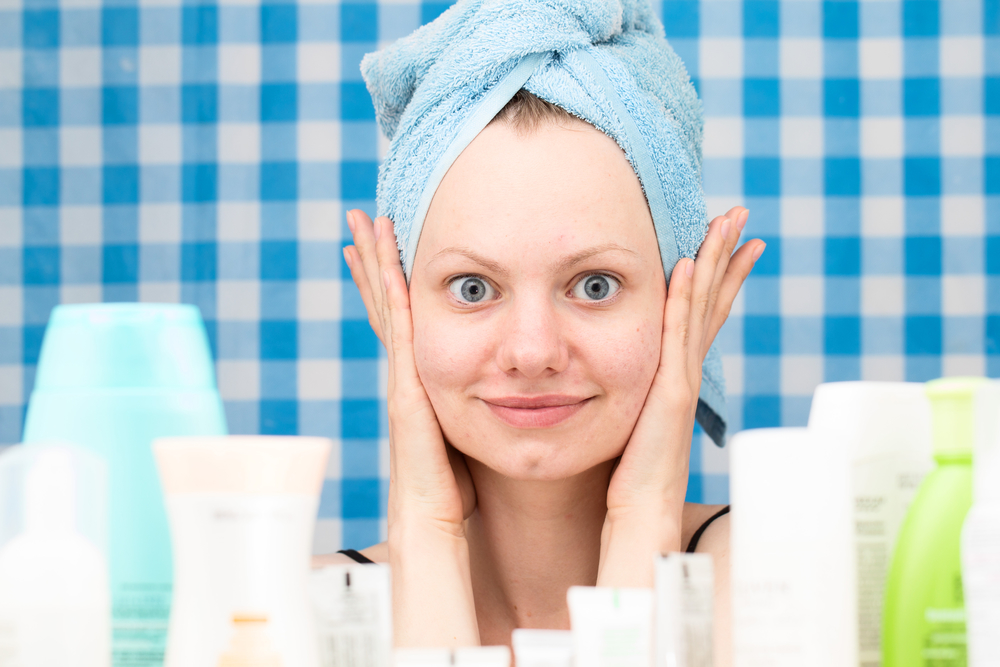In the quest for perfect skin, one of the most common problems for consumers is that they often come up against unfamiliar chemicals and industry terms. When this happens, you need to research to find out exactly what you might be putting on your skin. Failing to learn more means you could be risking long-term damage from either the wrong choice of product or an unforeseen side effect. One such chemical is hydroquinone, an ingredient commonly found in specific skin-lightening products.
What Is Hydroquinone?
Hydroquinone is frequently found in skin-lightening products like bleaching creams. It works by limiting your production of melanin, the hormone that darkens your skin. While some people use it to lighten their darker skin, hydroquinone creams are most commonly used to lighten small, dark patches like sunspots or hyperpigmentation.
Creams with hydroquinone as an ingredient are an excellent non-surgical aesthetic procedure to help you achieve the skin you have always wanted. Unlike skin lightening surgery, hydroquinone creams are a cosmetic procedure that can be undertaken in the comfort of your own home after the initial consultation with your dermatologist.
If you have dark patches or old sunspots, creams with hydroquinone can lighten them and – when combined with other suitable skincare ingredients – can help your skin recover from sun damage.
How Hydroquinone Works
Hydroquinone treatment lightens the skin gradually and has a reversible effect. It does this by interfering with the production of melanin, the black or brown substance responsible for the pigmentation of the skin, eyes, and hair. Acting on melanin-producing cells, or melanocytes, hydroquinone prevents the conversion of dihydroxyphenylalanine (DOPA) amino acids to melanin by affecting the activity of its precursor, tyrosine.
Applied over time, hydroquinone has a twofold effect. Not only does it interrupt the production of melanin, but it also interferes with the reproduction of melanocytes, reducing their number. This leads to the desired lightening effect of treated areas.
Skin Conditions That Benefit From Its Use
The most common use for hydroquinone creams is to treat skin conditions that cause hyperpigmentation. Besides Melasma, these conditions include: Acne scars, Age spots, Freckles, Psoriasis and/or eczema marks.
What’s often overlooked by those untrained in the use of hydroquinone is that it can’t treat actively inflamed areas. Hydroquinone creams can certainly help with old acne scars, for example, but they can’t help if you currently have an active acne breakout that’s causing dark redness.
A wide range of dermatological conditions cause darker spots, patches, and blemishes on the skin, which is clinically referred to as hyperpigmentation. With regular application, hydroquinone lightens the skin to correct this set of issues. Here’s a quick breakdown of the conditions that this treatment can improve.
Melasma
The formation of brown, tan, bluish, or gray patches or freckles on the face is the hallmark of melasma, also known as chloasma or “pregnancy mask.” The discoloration typically affects areas of the face that get regular sun exposure. This non-life-threatening condition is triggered by hormonal changes or as a side effect of certain medications.
Most commonly seen in younger women with brown or light brown skin, though anyone can develop it, melasma most often results from:
- Pregnancy
- Oral contraceptives (birth control pills)
- Hormone replacement therapy, which is often a treatment for menopause
In some cases, melasma patches and spots go away on their own. For instance, pregnant people may see them fade after delivery.
Eczema
Also known as dermatitis, eczema refers to a set of inflammatory responses in the skin. This causes scaly, dry, and itchy skin, as well as rashes on the face, elbows, knees, and on hands, and feet. Eczema is especially problematic because scratching affected areas can lead to bleeding or infection.
The exact causes of this noncontagious skin disorder are unknown, though evidence suggests it’s likely caused by a combination of genetic and environmental factors. Eczema is most common in infants or children, and in some cases, it fades with age. However, it can affect adults too and is typically a long-lasting or chronic condition.
Acne Scars
When the pores of the skin become clogged with oil or dead skin particles, acne arises, characterized by bumps and spots on the face and body. These may range from blackheads, red spots (known as pimples), and whiteheads, in which the affected pore has filled with pus. Commonly arising in adolescence, 80% of teenagers experience acne, though it can affect people of all ages.
As the affected skin heals, a thicker substance called collagen develops, which can cause permanent scarring and discoloration of the skin. Several types of scarring occur, including:
- Ice-pick, in which there are small pinpoints in the skin
- Boxcar, or round or oval depressions in the skin.
- Rolling, characterized by small indentations in the skin caused by bands of scar tissue
You’re more prone to develop acne scars when the acne is more severe, you pick or pop whiteheads or blackheads, the condition is long-standing, or you have a family history of them.
Psoriasis
Psoriasis is a chronic autoimmune condition that affects the skin by speeding up the lifecycle of skin cells. Its typical signs are patches of thickened, red skin and the appearance of silvery scales. This discoloration often affects the face and is also seen in the scalp, knees, elbows, lower back, palms, and soles of the feet.
Age Spots
Also known as liver spots, age spots are brown and black spots on the skin that are often exposed to the sun. They typically arise as a natural result of aging or due to cellular damage caused by sunlight or ultraviolet (UV) rays. Unrelated to any other disease, age spots are painless. They can, however, resemble other, more serious skin conditions.
How Does Hydroquinone Work?
For some people, melanocytes produce excessive amounts of melanin, resulting in dark patches of skin — a condition known as Melasma. These can appear as grey-brown patches, normally on the cheeks, nose, chin, forehead, and upper lip. In some cases, dark patches may also appear on the neck and the arms.
Although it’s women who are normally affected by Melasma, it does affect a small number of men too. Melasma is also very common among pregnant women due to the fluctuation of their hormones. Sun exposure can also be a common cause of the condition.
Whatever your reasons for considering using creams with hydroquinone, it’s vital you discuss treatment with a trained professional. The effects are not immediate, and you will need to apply the hydroquinone cream correctly for the time specified by your doctor.
Generally, it takes around four weeks for effects to become noticeable, although some patients may find that it takes longer to see visible results with even the best hydroquinone creams.
How to Use Hydroquinone
As noted, hydroquinone creams or gels come in over-the-counter 2% and prescription-strength 4% solutions. Generally, it’s advised to test the solution on a smaller area first to see if there’s irritation or any side effects before full application.
Here’s a quick rundown of how to apply hydroquinone:
- Thoroughly clean your hands and face.
- Make sure the target area is dry before application.
- Apply a thin layer of cream or gel to the area and gently rub it into the skin.
- Wash your hands afterward to prevent your fingertips from lightning.
Critical for successful treatment is protection from the sun. You’ll need to wear strong sunscreen and hats every day and work to avoid direct sunlight. Exposure further damages the skin and can prompt hyperpigmentation to return.
What Are the Side Effects of Using Hydroquinone Creams?
Almost all medicines have side effects and creams with hydroquinone are no different. Some of the side effects of using hydroquinone creams are no different to any change to your skincare regime, such as irritation. But, if your skin is particularly vulnerable to contact dermatitis or skin irritation, hydroquinone creams may not be the best option for you.
One of the most well-known side-effects of hydroquinone cream is that patients can often find themselves more susceptible to ultraviolet (UV) rays and sunburn. While you should always make sure to wear sunscreen on bright days, if you’re using a cream with hydroquinone, you should apply sunscreen with a high sun protection factor (SPF) even on cloudy days. Hats and jackets can also help to protect your skin on bright days.
You’ll need to keep your skin protected throughout the hydroquinone cream treatment, which can be a long process. Remember that hydroquinone isn’t a quick fix. If you don’t adequately guard your skin against UV rays and hydrate your skin during your treatment, there’s a risk your dark spots will reoccur and may become darker than they originally were.
Of course, when patients are treated with hydroquinone cream by our trained medical experts. The most common reason for health risks to arise — and the main reason why hydroquinone creams are considered controversial — is that many people order their hydroquinone creams online.
Those creams with hydroquinone will rarely if ever, conform to the necessary safety standards. Using skin lightening products that you find online is always going to be a bigger risk. The side effects of using those treatments can be extremely serious and include:
– Permanently bleached skin
– Visible blood vessels
– Skin becoming thinner
– Uneven and patchy skin
– Redness, irritation, and in some cases, a stinging sensation.
Patients who use creams with hydroquinone without professional medical supervision and advice will find that some side effects can be permanent, even if they stop using the medication.
One of the most serious side effects of using creams with hydroquinone that haven’t been medically approved is liver and nerve damage, as unapproved medications can contain toxic mercury as well as hydroquinone. Creams containing mercury can lead to serious problems with the liver and — if used during pregnancy — can also lead to fetal abnormalities.
However, using approved creams with hydroquinone makes it unlikely that any serious side effects or adverse health conditions will occur. That’s why it’s so important to ensure you only use hydroquinone creams under direct medical supervision.
What Happens When You Stop
The effect of hydroquinone on skin pigmentation is reversible. If you stop, the melanocytes affected by treatment start to resume normal activity, causing the blemishes or spots to gradually reappear.
Because long-term use can increase the risk of side effects, dermatologists recommend the daily application for three to six months, followed by rest periods of less frequent maintenance use. These maintenance periods—in which hydroquinone is only applied two to three days a week—have been shown to preserve the results of treatment up to six months after stopping.
Alternatives to Hydroquinone Creams
If you’re worried about using creams with hydroquinone, then your first step should be to speak to your dermatologist. If you don’t yet have one, make sure you choose the right cosmetic clinic to get your treatment.
Products that contain kojic acid, vitamin B3, or vitamin C are all-natural alternatives present in hydroquinone-free skincare. Products with arbutin, a bearberry plant extract, is also frequently used as a natural alternative to hydroquinone. It acts the same way as hydroquinone by slowing down the skin’s melanin production to lighten the skin over time.
READ MORE: 13 Tea Tree Oil Benefits For Skin And Hair
Takeaway
Hydroquinone is a topical agent for treating discoloration on the skin due to age spots and acne scars, as well as dermatological conditions like melasma and eczema. Available as a cream or gel, it’s available both over the counter or with a prescription.
Over time, the use of hydroquinone causes blemishes to fade, though prolonged use can cause side effects. Though there have been concerns about safety, used properly, it’s been found to be well-tolerated and effective.
Though the skin conditions hydroquinone treats aren’t dangerous, blemishes, patches of discoloration, and other issues can significantly impact self-esteem and quality of life.
Nowadays, there is much you can do to correct these issues and restore your self-confidence. If you’re unsatisfied with how your skin looks—or aren’t sure what’s on your skin—it’s worth reaching out to a dermatologist and exploring your options.
READ MORE: 17 Best Foods For Healthy Skin









